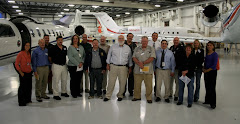Helen Keller program will teach ‘real-life’ technology
Written by Brad Durrell
Thursday, 13 August 2009 13:51
Linking course work to real life.
That’s the goal of the Project Lead the Way initiative to be implemented at Helen Keller Middle School during the next five years.
The program teaches youngsters about math, science and technology in a way that exposes them to the different types of careers available in engineering and related fields.
“We want to connect course work to real life, especially when students’ interests in careers are still forming,” said Keller Principal Joan Parker.
Few students really understand what engineers and technology workers do, and the variety of opportunities available to them in the medical, environmental, manufacturing, research, design and computer industries.
The private, nonprofit Easton Learning Foundation (ELF) has agreed to fully fund the five-year implementation plan at a cost of $115,700. The costs include room alteration, equipment, software, and teacher and guidance counselor training.
Beginning in 2014-15, it is expected the program’s ongoing annual expenses of $3,900 to $8,900 would be paid by the Easton Board of Education. The initiative would become part of Keller’s regular curriculum.
The school system is unable to pay the five-year implementation costs now due to budget constraints.
School Supt. Allen Fossbender is excited about the program’s potential, noting students would learn about the variety of jobs in engineering at a young age. “It opens up career exploration and makes class relevant to them,” he said.
National program
Project Lead the Way is a national nonprofit organization that designs pre-engineering courses for middle school and high school students.
The goal is to show students how engineers use technology to solve everyday problems. The Project Lead the Way curriculum has been used at 300 schools across the nation, including in Simsbury and Stratford in Connecticut.
A brochure for Project Lead the Way explains that today’s engineers don’t necessary fit the stereotype held by most young people.
“Aren’t they those brainy nerds, the unfashionable introverts who always dream about math and science, computers, and schematics?” states the brochure. “No...The days of the pocket-protector-wearing engineer are gone.”
In fact, the brochure points out, the people who become engineers aren’t necessarily the best math and science students when young.
“The key is early exposure,” Parker said.
The United States is in dire need of engineers, especially when compared to China and India. Many experts fear the lack of trained engineers could hamper America’s competitiveness in the global economy.
New teacher, classroom
Students will begin the new course work in year two of the plan, or in the 2010-11 academic year.
The students will be taught about design and modeling, automation and robotics, electrons, the science of technology, and aerospace.
“The curriculum,” states the brochure, “gives them hands-on experience applying math and science concepts to solving real-life problems.” Students also will be taught the importance of communication skills.
The woodshop at Keller will be renovated, with new computers and other equipment added. Some of the existing equipment may be used for certain tasks.
A new teacher, Betty Noone, has been hired to teach technology, engineering and design. She replaces longtime woodshop teacher Ted Gass, who school officials praised for his expertise and years of service.
Noone has strong computer skills and has worked in the private sector, school officials said.
Fossbender said the Project Lead the Way approach will change lives for the better. “It really makes the curriculum come alive,” he said. “It’s engaging. It’s tested and relevant, and has been put in place by others.”
Foundation is thanked
Parker and Fossbender said ELF’s willingness to fund the initial costs should be applauded, noting the foundation has focused on the importance of science, technology and math in the past.
“They are taking this one on, and we are just thrilled about it,” Parker said. “There would be no other way to get this started.”
Fossbender said ELF “will partner with us once again, leading to a positive program.”
Keller officials worked closely with Greg Kane of the state Department of Education to pursue the program. Kane has since retired.
Fossbender also said he admired the efforts of Parker and Assistant Principal Susan Kaplan to start the program. “They persisted despite the budget issues,” he said.
Parker said one reason for her persistence is because early adolescence is a time when youngsters are open to more activities, so it’s the right time to teach them more about the career potential for engineers.
“The excitement of discovery and the passion of investigating one’s interests generates an energy that is electric,” she said.


